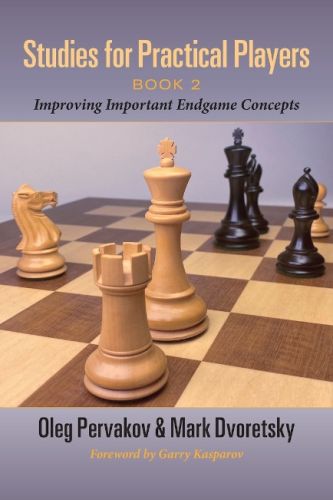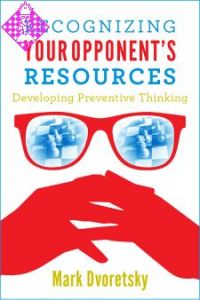Artikelnummer
LEDVOSFPP2
Studies for Practical Players Book 2
Improving Important Endgame Concepts
176 Seiten, kartoniert, Russell Enterprises, 1. Auflage 2024
Develop Imaginative and Preventive Thinking
Nowadays, chessplayers spend almost all their free time preparing openings, and rarely spend the time necessary to perfect the vitally important technique of calculating. Regular training in solving and playing out endgames studies is a good recipe for eliminating that shortcoming.
This book – the sequel to Studies for Practical Players released over a decade ago – is mostly aimed at practical players who wish to improve their chess skills by developing imaginative and preventive thinking, while perfecting calculation of variations and knowledge of basic endings. In addition, this work will certainly be appreciated by every lover of beauty, logic and paradoxicality of the game.
The creative collaboration between a famous trainer with a world-renowned name and a study composer who has earned the title of International Grandmaster of Composition will give chessplayers the best of both worlds: The elegance of endgame studies and the practical application of endgame theory.
[Endgame studies] are an excellent training tool ... everything is as close to battlefield conditions as can be. Of course, the contents of the book are not nearly limited to studies by one author. It also includes wonderfully annotated creative works of many outstanding chess study composers and practical players. Outstanding! – From the Foreword by Garry Kasparov
Nowadays, chessplayers spend almost all their free time preparing openings, and rarely spend the time necessary to perfect the vitally important technique of calculating. Regular training in solving and playing out endgames studies is a good recipe for eliminating that shortcoming.
This book – the sequel to Studies for Practical Players released over a decade ago – is mostly aimed at practical players who wish to improve their chess skills by developing imaginative and preventive thinking, while perfecting calculation of variations and knowledge of basic endings. In addition, this work will certainly be appreciated by every lover of beauty, logic and paradoxicality of the game.
The creative collaboration between a famous trainer with a world-renowned name and a study composer who has earned the title of International Grandmaster of Composition will give chessplayers the best of both worlds: The elegance of endgame studies and the practical application of endgame theory.
[Endgame studies] are an excellent training tool ... everything is as close to battlefield conditions as can be. Of course, the contents of the book are not nearly limited to studies by one author. It also includes wonderfully annotated creative works of many outstanding chess study composers and practical players. Outstanding! – From the Foreword by Garry Kasparov
| EAN | 9781949859805 |
|---|---|
| Gewicht | 240 g |
| Hersteller | Russell Enterprises |
| Breite | 15 cm |
| Höhe | 22,7 cm |
| Medium | Buch |
| Erscheinungsjahr | 2024 |
| Autor | Mark DworetskiOleg Pervakov |
| Sprache | Englisch |
| Auflage | 1 |
| ISBN-13 | 978-1-949859-80-5 |
| Seiten | 176 |
| Einband | kartoniert |
005 Foreword by Garry Kasparov
009 From One of the Authors
Chapter 1
013 Study-Like Ideas and Combinations
Chapter 2
061 The Foresight Effect
Chapter 3
089 Training
089 Studies by Practicing Grandmasters
090 Test 1
093 Solutions, Test 1
110 Test 2
113 Solutions, Test 2
Chapter 4
129 Dvoretsky Memorial Chess Composition Contest
129 Studies for Practical Players
Chapter 5
158 A Tale of Three Studies
158 Human Aid
162 The Return of Four Rooks
168 Born in Malakhovka
174 Index of Study Composers
176 Index of Game Fragments
009 From One of the Authors
Chapter 1
013 Study-Like Ideas and Combinations
Chapter 2
061 The Foresight Effect
Chapter 3
089 Training
089 Studies by Practicing Grandmasters
090 Test 1
093 Solutions, Test 1
110 Test 2
113 Solutions, Test 2
Chapter 4
129 Dvoretsky Memorial Chess Composition Contest
129 Studies for Practical Players
Chapter 5
158 A Tale of Three Studies
158 Human Aid
162 The Return of Four Rooks
168 Born in Malakhovka
174 Index of Study Composers
176 Index of Game Fragments
Mehr von Russell Enterprises
-
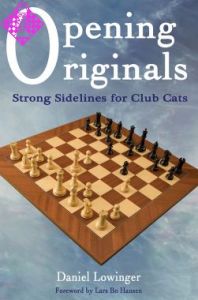 Opening Originals22,95 €
Opening Originals22,95 € -
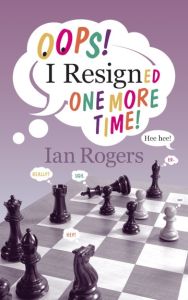 Oops! I Resigned One More Time!19,95 €
Oops! I Resigned One More Time!19,95 € -
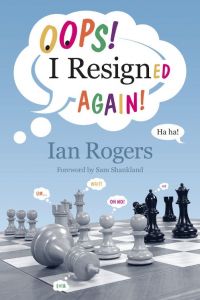 Oops! I Resigned Again!9,95 €
Oops! I Resigned Again!9,95 € -
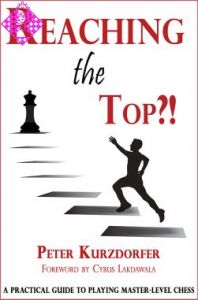 Reaching the Top21,90 €
Reaching the Top21,90 € -
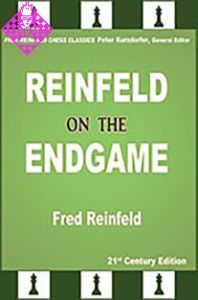 Reinfeld on the Endgame14,95 €
Reinfeld on the Endgame14,95 € -
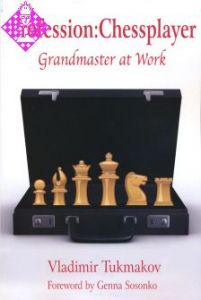 Profession: Chessplayer24,95 €
Profession: Chessplayer24,95 € - Mehr von Russell Enterprises

